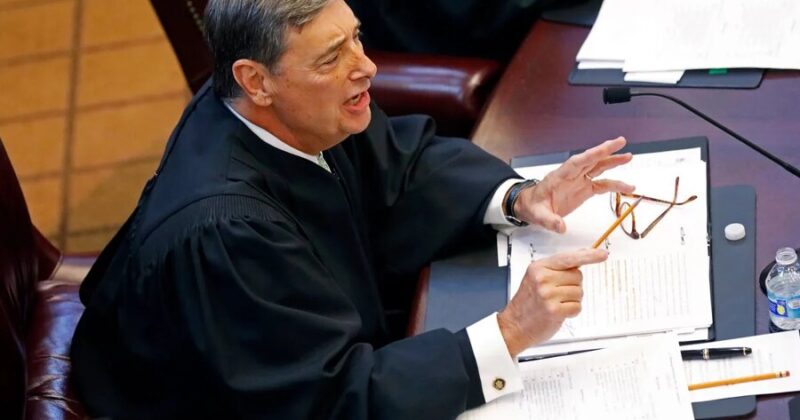A federal judge ruled on July 28 that a Mississippi law allowing ballots received up to five days after an election to be counted is lawful.
U.S. District Judge Louis Guirola Jr. referenced the Uniformed and Overseas Citizens Absentee Voting Act (UOCAVA), which regulates ballots from citizens living abroad.
“So if one federal statute implicitly allows post-election receipt of overseas ballots mailed by election day, that statute is presumed not to offend against the election-day statutes, from which one may infer that the similar Mississippi statute on post-election receipt is likewise inoffensive,” the judge wrote in a 24-page ruling.
The ruling dismissed cases brought against Mississippi officials by the Republican National Committee, the Mississippi Republican Party, and the Libertarian Party of Mississippi.
The Mississippi law mandates that absentee ballots postmarked on or before Election Day must be counted, as long as they are received within five business days after the election.
The U.S. Constitution’s elections and electors clause grants Congress the authority to set Election Day for selecting electors for president and vice president, as well as the date for voters to choose members of Congress. Congress subsequently established a single day for both electors and congressional votes.
The Mississippi law “contravenes those federal laws” because it “effectively extends Mississippi’s federal election past the Election Day established by Congress,” Republicans said in their complaint.
They argued that the law forced them to spend money on educating voters about the post-Election Day receipt deadline and requested the court to declare the law illegal and block its enforcement.
Mississippi officials argued that the law does not directly conflict with federal statutes, as those statutes do not specify whether ballots must be received on or by Election Day.
Judge Guirola noted that while Republicans and the Libertarian Party demonstrated standing, meaning they are affected by the law, they did not prove that the law is illegal or unconstitutional.
He referenced earlier court rulings, including a 2023 district court decision that upheld an Illinois law allowing ballots postmarked on or before Election Day to be counted if received within 14 days after.
In that case, the judge cited the UOCAVA and highlighted that the U.S. Attorney General “often seeks court-ordered extensions of ballot receipt deadlines to ensure that military voters are not disenfranchised.”
“These longstanding efforts by Congress and the executive branch to ensure that ballots cast by Americans living overseas are counted, so long as they are cast by Election Day, strongly suggest that statutes like the one at issue here are compatible with the Elections Clause,” Judge Guirola said.
“In the absence of federal law regulating absentee mail-in ballot procedures, states retain the authority and the constitutional charge to establish their lawful time, place, and manner boundaries.”
Since the Mississippi law is legal, there are no violations of plaintiffs’ constitutional rights, he added.
Share your thoughts by scrolling down to leave a comment.

